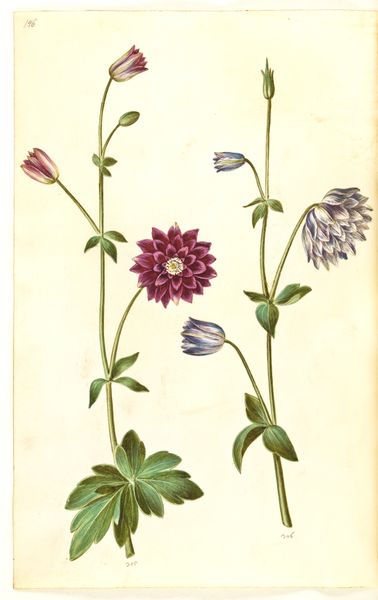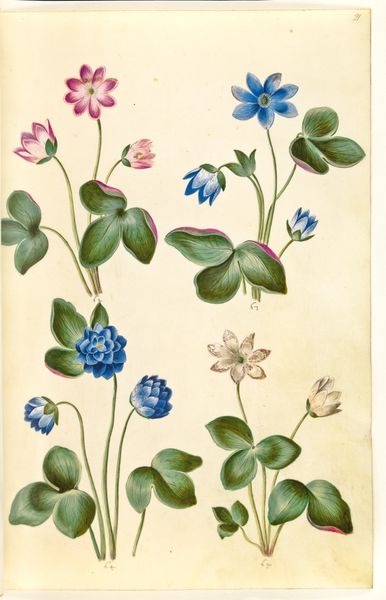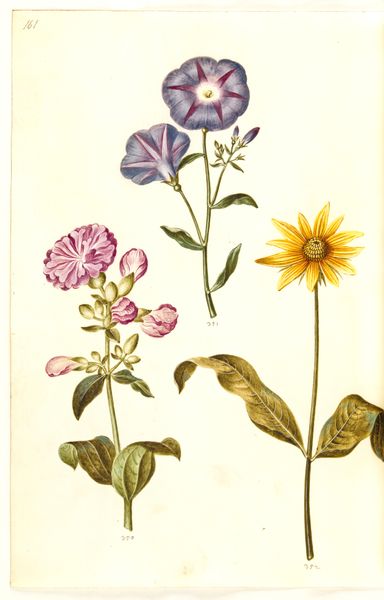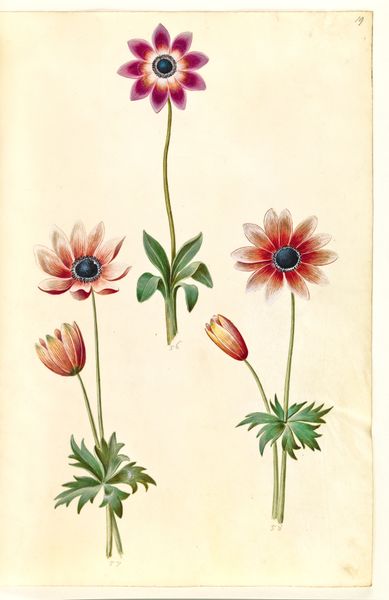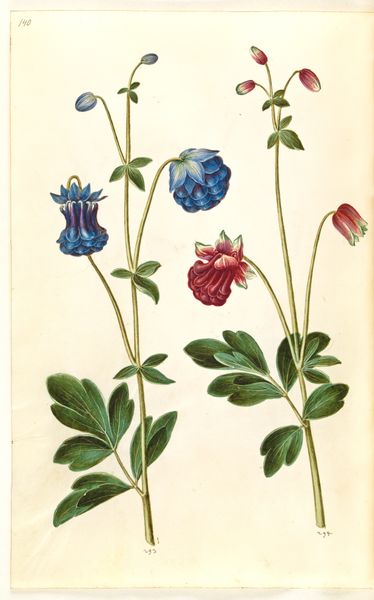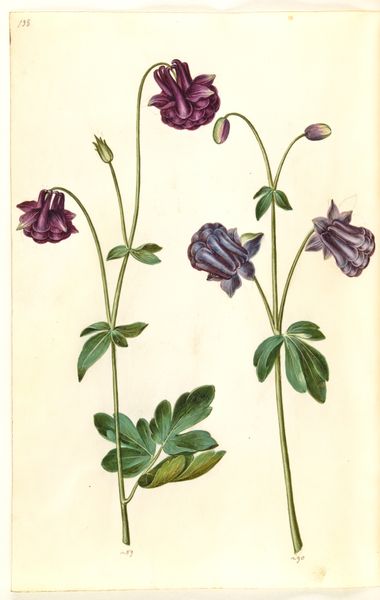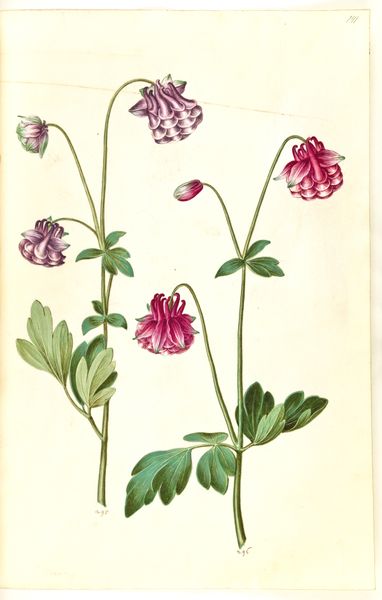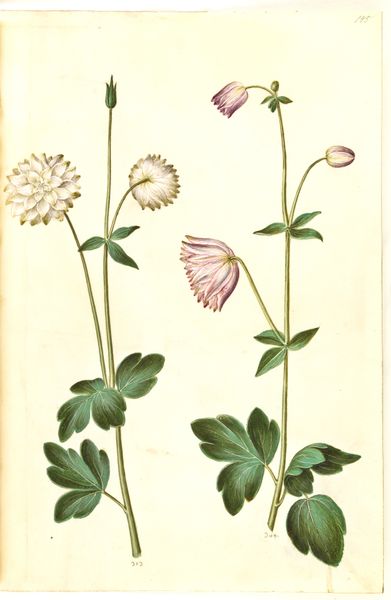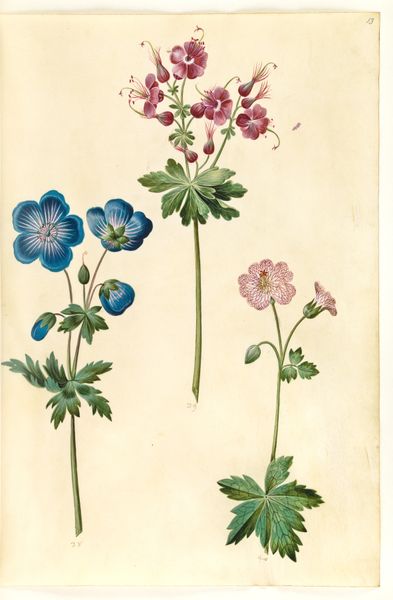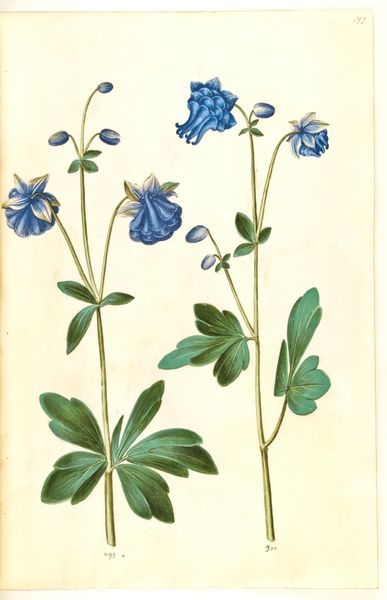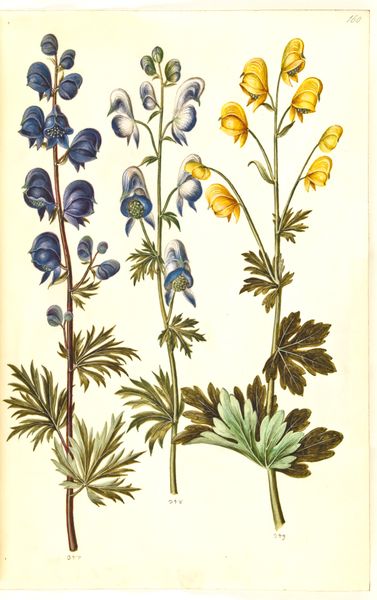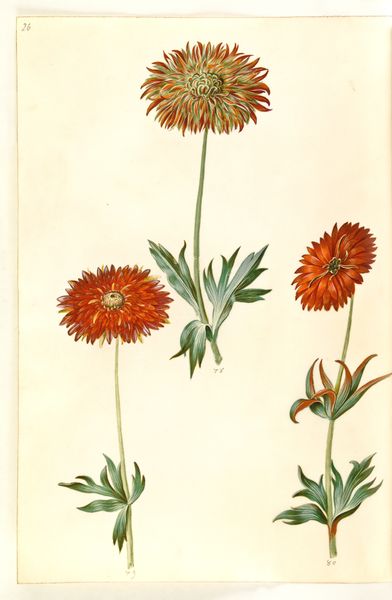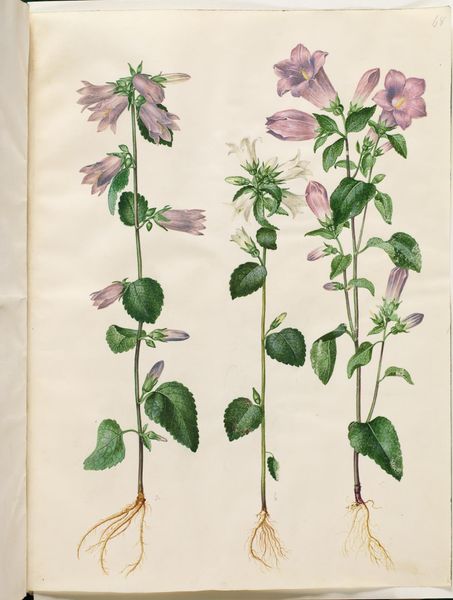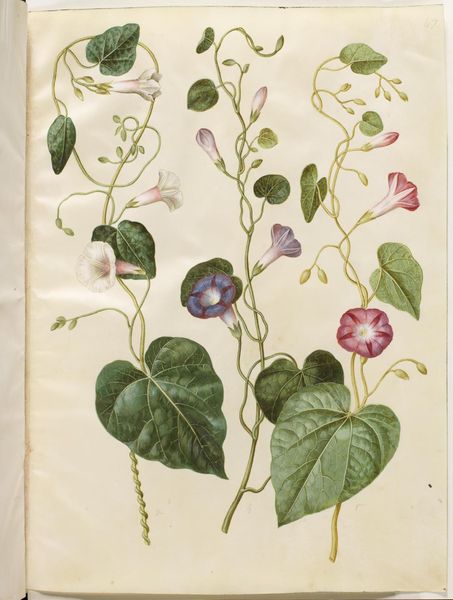
Aquilegia vulgaris (almindelig akeleje) 1635 - 1664
0:00
0:00
drawing, gouache
#
drawing
#
gouache
#
northern-renaissance
#
botanical art
Dimensions: 375 mm (height) x 265 mm (width) x 85 mm (depth) (monteringsmaal), 358 mm (height) x 250 mm (width) (bladmaal)
Hans Simon Holtzbecker rendered these columbines with watercolor and gouache around the mid-17th century, an age teeming with symbolic languages. The Aquilegia, or columbine flower, is here presented with its distinct spurred petals, once laden with religious significance. Medieval artists often depicted the columbine in association with the Virgin Mary, its five petals symbolizing her sorrows. The flower’s pendant, nodding posture evokes humility and contemplation. Yet, these symbols are never static. The columbine, like many potent images, underwent transformations. From religious iconography to emblems of love and longing in Renaissance gardens, its meaning evolved, demonstrating the mutable nature of symbols as they journey through time. This constant reshaping reflects our collective, often subconscious, reinterpretation of cultural memory. Just as the human psyche projects onto symbols, so too does each era imprint its own emotional landscape onto these enduring motifs.
Comments
No comments
Be the first to comment and join the conversation on the ultimate creative platform.
